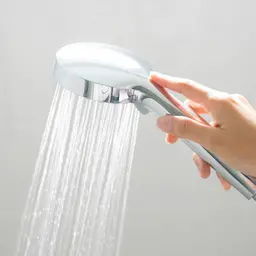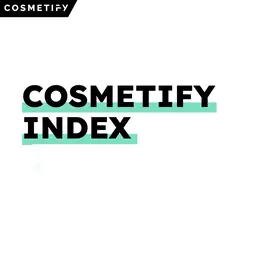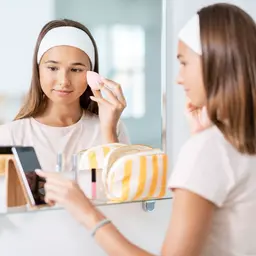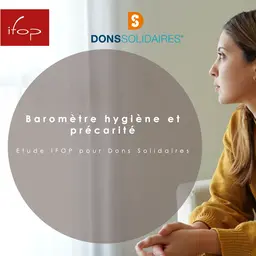
In a post-pandemic world, the design and packaging of home and beauty products will play a key role in the evolving relationship between consumers and brands. Packaging supplier Aptar Beauty + Home conducted a four-country foresight study in China, France, Brazil and the United States to explore the effects of the health crisis on consumer behaviour. The study revealed six profiles with very different expectations and identified initial trends in future needs.
“For more than 70 years, Aptar Beauty + Home has been developing its product innovation strategy based on an in-depth knowledge of market trends and consumer needs. By keeping pace with changing lifestyles, we strive to create packaging that offers a unique experience through innovative, relevant and responsible solutions. Our customers benefit from personalised products that help them develop a unique relationship with consumers,” says the packaging supplier.
The company’s global survey reveals the lasting impact of the coronavirus pandemic on consumer behaviour and changing needs.
The study surveyed 9,600 consumers of beauty and home care products in four countries: China, France, Brazil and the United States, with a first phase in June 2020, after lockdown, and a second phase in October 2020, as the second wave of the pandemic began.
The results show significant changes in priorities and have led to the emergence of six new consumer profiles with specific needs: some universal, others specific to geographical and socio-economic variants.
Six changed consumer behaviours
“Our study revealed, among other things, that Covid-19 has led some consumers to review the functioning of their home and to become aware of its impact on their mental well-being. This increased anxiety around hygiene and personal well-being is mainly in the beauty and personal care sphere,” says Marie Jacquemin, Head of Consumer Research at Aptar Beauty + Home.
Among the consumer profiles identified:
• The “Unphased”, mostly men, who were not really affected by the pandemic and have not changed their habits
• The “Survivors”, who tried DIY to solve supply problems or alleviate financial constraints
• The “Reinventors”, often young, who see the pandemic as an opportunity to transform their lifestyle
• The “Anxious”, who need reassurance above all and therefore expect trusted brands to offer them safe solutions
• The “Covid Aware”, who actively seek out products that address the risks of the pandemic and provide solutions
• The “Changed”, who completely rethink their home care routine and use innovative products
Growing anxiety
Analysis of the emotional state of consumers clearly indicates an increase in anxiety: for 29% of them, fear is now the dominant emotion. Protective masks have become a symbol of an altered state of mind and daily life: 97-100% of the people interviewed for this study wear a mask.
Combined with a decline in trust in institutions, this pessimism affects a large majority of respondents: 50% of Americans feel they are not sufficiently protected, 78% of Brazilians are worried about their loved ones. Fearing for their financial stability, many consumers are cutting back on spending: 30% of disposable income is saved in the US and France, 40% of Chinese consumers have postponed major purchases.
In addition, restrictions in some industries make the financial situation of their workforce very uncertain.
A deep crisis, accelerating trends
In the field of beauty and home care products, new trends are shaping the future of innovation. More aware of health and hygiene issues, many consumers now expect tangible proof of the effectiveness of the products they use: in China, 89% of consumers read labels to check the effectiveness of products against viruses and bacteria.
The trend of cocooning at home has also grown in all markets. Consumers are spending more time at home and are therefore looking for products to improve their indoor environment and well-being, and in particular air quality. The antimicrobial effectiveness of products has become a key criterion: up to 91% of consumers rely heavily on multi-purpose cleaners to eliminate microbes in their homes.
In addition, the pandemic has been an opportunity for many to redefine their priorities and make consumer choices more in line with their values. Respect for the environment remains a major concern for a large proportion of consumers, despite the behavioural bias that tends to oppose sustainability and efficiency: for 37% of French consumers, there is no possible compromise between sustainability and efficiency.
Another notable change involves the accelerated adoption of digital as a key purchasing channel, a situation that is likely to continue, particularly with the development of teleworking: 41-91% of consumers intend to continue shopping online.
Consumerism hit hard
In the beauty and home care sector, consumption has undergone unimaginable changes in such a short period of time. The tremendous growth for specific products, such as hand sanitisers in the personal care category, stands in stark contrast to the drop in sales of cosmetics and fragrances: reported use of hand sanitisers in all markets surveyed in July increased from 63 to 86 points, while reported consumption of the eye make-up category dropped by 56 points in July in Brazil.
The axes of innovation
Contactless commerce, home care and anti-microbial solutions are the main areas of innovation identified by Aptar Beauty + Home.
Already highly developed in Asia, contactless commerce requires an agile response to introduce it into omni-channel distribution in Western markets.
“Based on the key findings of the study, our teams are working diligently on these areas of innovation to provide contactless, home and anti-microbial solutions for each segment category. Innovative multi-functional products, aimed at offering concrete solutions to consumers on the move, are also under consideration,” says Marco Burigana, Innovation Director at Aptar Beauty + Home.
The new normal of tomorrow
The Aptar Beauty + Home study finally confirms that in 2021, while consumers will continue to look for innovative products that meet their needs, new consumer product brands are expected to enter the market. Consumption of beauty products will gradually increase in the second half of the year and into 2022 if the pandemic conditions subside due to the widespread vaccination campaigns.
By 2023 and beyond, the major e-commerce and sustainability trends seen during the pandemic will become the norm, while concerns about hygiene, safety, security and efficacy of cleaning products will have become a reflex for many consumers.
Product design and packaging will play a key role for brands seeking to reassure consumers by giving them tangible reasons to trust them. As well as being an ideal medium for communicating a message, packaging will also provide the personalised experience that consumers are looking for, concludes Aptar.













